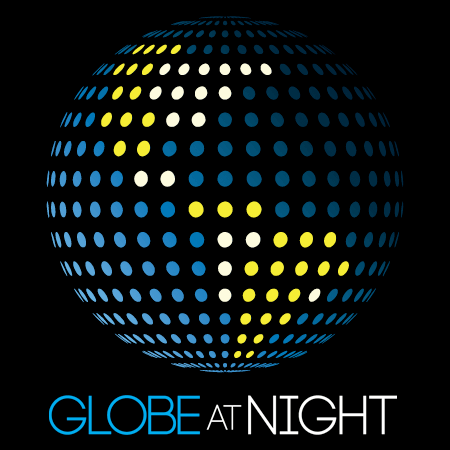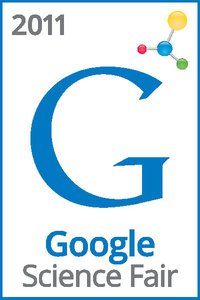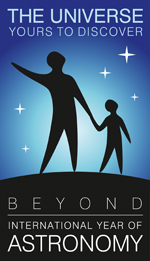IYA2009 Updates
Measurable effects of IYA2009 in Sweden
6 December 2010
A recent study of the recognition of science among the Swedish public has demonstrated a pronounced change in the appreciation of astronomy.
Sweden has a strong tradition of measuring and documenting statistics on its population in various respects, a tradition that actually was started by the astronomer Peter Wargentin in the mid 18th century. The organization Vetenskap och Allmänhet[1] (Science and the Public) with individuals as well as science-related agencies and organisations as members, conducts since a decade an annual survey attempting to measure the attitudes of the population to science. Last year 3000 Swedes of different ages above 14 were thus interviewed by telephone. The results show as usual a relatively high appreciation of science in general.[2]
Among the questions, one asked about whether a number of disciplines listed should be categorized as a "science". Here, one should note that the Swedish word used was “Vetenskap” which refers not only to natural sciences but also humanistic fields like history, music science or law – basically all disciplines in which research is performed at universities. In this ranking Medicine is usually quite high (>90% of all Swedes seem to regard that a science) while Philosophy and Theology rank lowest (about or less than 30%).
The good news is now that Astronomy increased from 2008 to 2009 from 53% to 67%, the greatest change of all since 2008. All other changes are below 10% and most much less than that. It seems natural indeed to ascribe this to the International Year of Astronomy, which was recognised rather widely in Sweden. If the study is representative, and there are good reasons to believe it is, it seems to suggest that about 1.5 million more Swedes have become aware of that astronomy is a science as a result of the IYA2009 efforts.
(Report by Bengt Gustafsson, IYA2009 SPoC for Sweden)
[1] with the acronym VA (the word “va” is used colloquially by Swedes with the meaning “I beg your pardon”), http://www.v-a.se/why_va/
[2] VA-Barometern 2010/11, in Swedish
GLOBE at Night 2011
3 December 2010

GLOBE at Night encourages citizen-scientists worldwide to record the brightness of the night sky. During 2 winter/spring weeks of moonless evenings, children & adults match the appearance of a constellation (Orion in February/March and Leo in March/April) with 7 star maps of progressively fainter stars found at www.globeatnight.org. They then submit their choice of star map on-line with their date, time and location to help create a light pollution map worldwide.
The GLOBE at Night 2011 campaign dates are February 26 – March 6 (worldwide) and March 22 – April 4 (for the Northern Hemisphere) and March 24 – April 6 (for the Southern Hemisphere). 52,000 measurements have been contributed from more than 100 countries over the last 5 years of two-week campaigns, thanks to everyone who participated!
Through GLOBE at Night, students, teachers, parents and community members are amassing a data set from which they can explore the nature of light pollution locally and across the globe. Please make a difference and join our efforts in 2011. For one-page flyers and postcards advertising the campaign, visit www.globeatnight.org/pdf/.
Director of Office for Astronomy Development (OAD) appointed
3 December 2010
Kevindran Govender, Manager of the SALT Collateral Benefits Programme at the South African Astronomical Observatory, Cape Town, has been appointed Director of the IAU Office for Astronomy Development. Kevin has built the SCBD into a visible and successful group, using astronomy for development and for advancing the economy, technology, and society of Africa. Kevin played an important role in several global IYA activities and was a major contributor in the development of the IAU Decadal Strategic Plan “Astronomy for the Developing World” which the OAD is responsible for leading and coordinating.
More information on http://www.saao.ac.za/no_cache/public-info/news/news/article/189/16/
The IAU Strategic Plan is available on http://iau.org/static/education/strategicplan_091001.pdf
Call to action: Astro Library-Indonesia
3 December 2010
langitselatan (LS) - Southern Skies - is an astronomy communication and educator media in Indonesia run by young group of astronomy enthusiasts with the vision of getting astronomy in the local media, astronomy education and awareness throughout the country. LS has been working tirelessly over the years to achieve these by conducting star parties, telescope training, teachers training, hands on activities, story telling session, astronomy discussion and talk shows and astro-presentation.
To expand their efforts, LS hopes to build a small library which will be used by the members, students and the local community. Through the library project, they hope to increase the reading habits of young students and teachers as well. To achieve their dream of setting up a library to improve astronomy education in Indonesia, Astro Book Drive calls the international community to donate Astronomy reading materials.
Please read the call at: http://astrodrive.lakdiva.net/projects/indonesia_bookdrive.html
Beyond IYA2009 Updates
3 December 2010
The Google Science Fair is coming …
On the 11 January 2011 Google is launching the inaugural Google Science Fair. More information: http://www.astronomy2009.org/news/updates/1116/
2011 ASP Education and Public Outreach Conference: 30 July - 3 August 2011, Baltimore, USA: http://www.astronomy2009.org/news/updates/1114/
Presentation: From Earth to the Universe: Distributed curation and global to local methodology: http://www.astronomy2009.org/news/updates/1112/
ESO's Online Store is Open with free educational material for educators: http://www.astronomy2009.org/news/updates/1117/
Adventure Astronomy: Archaeoastronomy and Modern Astronomy Travel
The tours are accompanied by experts in their fields, including Prof. Clive Ruggles, chair of the IAU’s Working Group on Astronomy and World Heritage and co-author of the thematic study on the Heritage Sites of Astronomy and Archaeoastronomy. More information: http://www.astronomy2009.org/news/updates/1110/
BBC School Report the overall winner in the MEDEA Awards 2010
BBC's highly engaging project School Report which gives 11-14 year-old students in the UK the chance to make their own news reports for a real audience was a popular overall winner of this year's MEDEA Awards. More information: http://www.astronomy2009.org/news/updates/1115/
Summary of International Year of Astronomy 2009 Released
The Executive Summary, print-ready files and source files are available for download here:http://www.astronomy2009.org/summary/
ESO's Online Store is Open with free educational material for educators
3 December 2010
With the holidays just around the corner, the ESOshop is the perfect place to browse for gifts for all astronomy enthusiasts.
To visit the store, go to: http://www.eso.org/public/shop/
Educators and bona fide members of the press can order products for free from this website:http://www.eso.org/public/shop/freeorder/
One copy of each of ESO’s brochures, reports and educational materials (excluding posters, books and DVDs) can also be picked up in person for free at ESO’s Headquarters in Garching, Germany.
Notes
[1] Payment must be made by credit card. We accept VISA, MasterCard and American Express.
[2] The ESOshop is a non-profit enterprise. All revenue is used to cover the costs of production and handling.
The Google Science Fair is coming …
2 December 2010

On the 11 January 2011 Google is launching the inaugural Google Science Fair. We have partnered with NASA, CERN, National Geographic, Scientific American and the LEGO Group to create a new STEM competition that is more open, accessible and global than ever before. We wanted to reach out to educators prior to launch to let you know “the Google Science Fair is coming” and to extend an invitation to schools and teachers to get involved early in what we hope will be a large global initiative.
The Google Science Fair is a global competition that any student aged 13 - 18 from around the world is eligible to enter. Students can enter as individuals or as teams of up to three. There is no entry fee and registration and submission will happen online. The deadline for submissions will be the 4 April 2011. The Science Fair will culminate in a “once in a life time” celebratory event at Google headquarters in California in July 2011 where finalists will compete for internships, scholarships and prizes in front of a panel of celebrity scientist judges including Nobel Laureates, tech visionaries and household names.
We want to celebrate and champion great young scientific talent and give students from around the world the opportunity to compete for amazing experiences, prizes, scholarships and internships.
We hope you are as excited about this upcoming competition as we are are! To sign up for fun and free resource kits for your classroom or school (Google bookmarks, stickers, posters and more!) and a reminder notification when GSF registration opens, please visit the Google Science Fair at: google.com/sciencefair
BBC School Report the overall winner in the MEDEA Awards 2010
1 December 2010

BBC's highly engaging project School Report which gives 11-14 year-old students in the UK the chance to make their own news reports for a real audience was a popular overall winner of this year's MEDEA Awards. Using lesson plans and materials from the BBC News School Report website, and with support from BBC staff, teachers help students develop their journalistic skills to become School Reporters. Announcing the winner of this year's MEDEA Awards, Kathy Lindekens (VRT), talked about the high quality of the entries and the value of networking amongst all those involved. Ros Smith, representing BBC School Report at the awards ceremony held last night during the Media & Learning Conference in the Flemish Ministry of Education and Training headquarters in Brussels, expressed her delight about this award and the value the School Report experience can bring to individual children including those who may be slow to put themselves forward in normal classroom activities but who suddenly start to find their voice in School Report.
BBC School Report was also the winner of the Professional Production Award sponsored by AVID. The winner of the User-Generated Content Award sponsored by SMART was Et si c'était toi?, submitted by the Lycée Technique du Centre in Luxembourg and represented by Laurence Streitz. This 4-minute film was produced by 17 to 18-year old students of the secondary school Lycée Technique du Centre in Luxembourg and deals with bullying and domestic violence. The Adobe-sponsored European Collaboration Award went to Evolution of Life, a website created by LMU Munich in Germany and CNDP (Centre National de Documentation Pédagogique) in France and represented by Yannick Mahé, offering original teaching materials about the evolution of life. A special prize was given to Pocket Anatomy, submitted by eMedia Interactive in Ireland and represented by Mark Campbell. Pocket Anatomy is a fully searchable interactive atlas of the human anatomy designed to run on a mobile device.
The other finalists for this year's awards were Bla Bla Bla e-democracy e minori by Civil Life Lab (Italy) represented by Adriana Sartore, Level 7 by Careersbox (UK) represented by James Lawrence and Nick Newman, Monkey Labs by Die Keure/Larian Studios (Belgium) represented by Swen Vincke and Vicky Vermeulen, Theorem of Fire by Nafta Films (Estonia) represented by Esko Rips and The Classroom by Cornerhouse (UK) represented by Rachel Hayward.
In addition to the finalists, the MEDEA Awards organisers also announced the names of the 6 entries that have been Highly Commended in the 2010 competition. These are: Exploring the Nature: Five Stories, a documentary film series created by ELM MEDIA in Latvia, Bubble and Pebble created by Terakki Foundation School in Turkey, Green Schools 'War on Waste' by St Francis School, Priorswood in Ireland, Project Water H2Ooooh! by Gruppo Alcuni in Italy, Water in Ethiopia by the Open University, UK and Mindsetter by the Danish School of Education in Denmark.
Presentations by all the finalists were given during the Media & Learning Conference which attracted over 230 participants from 31 countries and which provided an important context for this year's MEDEA Awards. The conference agenda also included workshops led by previous winners and finalists of the MEDEA Awards.
More information: http://www.medea-awards.com/
2011 ASP Education and Public Outreach Conference
30 November 2010
Friday, July 30 - Wednesday, August 3, 2011
Tremont Plaza Hotel, Baltimore Maryland
The Astronomical Society of the Pacific invites you to a national conference on science education and public outreach in conjunction with its 123rd annual meeting. The conference, with the theme of "Connecting People to Science," will be held at the Tremont Plaza Hotel in Baltimore, a few blocks north of the Inner Harbor in the city's downtown area and close to restaurants and attractions. The conference proper will be held Monday through Wednesday, August 1-3, with special events the preceding weekend, July 30-31. Conference sessions will take place in the completely restored Baltimore Masonic Temple building, providing a unique and beautiful setting for learning what's up, sharing our experience and results, improving our practice, and making connections with each other across science disciplines.
Please mark your calendars for this "hands-on," intellectually stimulating meeting for everyone involved in science education and public outreach. Watch for announcements of special co-hosts, co-sponsors, speakers, events, and the call for abstracts between now and early 2011.
We're all about the business of connecting people to science -- with a variety of sciences in a variety of ways. Come to Baltimore next summer to connect with your colleagues and advance our combined efforts to create a science-literate and science-rich future!
Visit the conference web site at http://www.astrosociety.org/events/meeting.html
to sign up to receive more information about the meeting as it becomes available, and come back often as the conference web site grows. Watch for announcements of special co-hosts,
co-sponsors, speakers, events, and the call for abstracts between now and early 2011.
ESA Annual Report 2009 available
29 November 2010
The Annual Report is the ESA Director General's report to ESA Council on the major activities that have taken place in ESA each year. The International Year of Astronomy 2009 is one of the highlights.
Read on-line: http://esamultimedia.esa.int/multimedia/publications/Annual-Report-2009/pageflip.html
Search IYA2009 Updates

National Nodes: 148
Organisational Nodes: 40
Organisational Associates:33
National Websites: 111
Cornerstone Projects: 12
Special Task Groups: 11
Special Projects:16
Official Products:8
Media Partners:22


